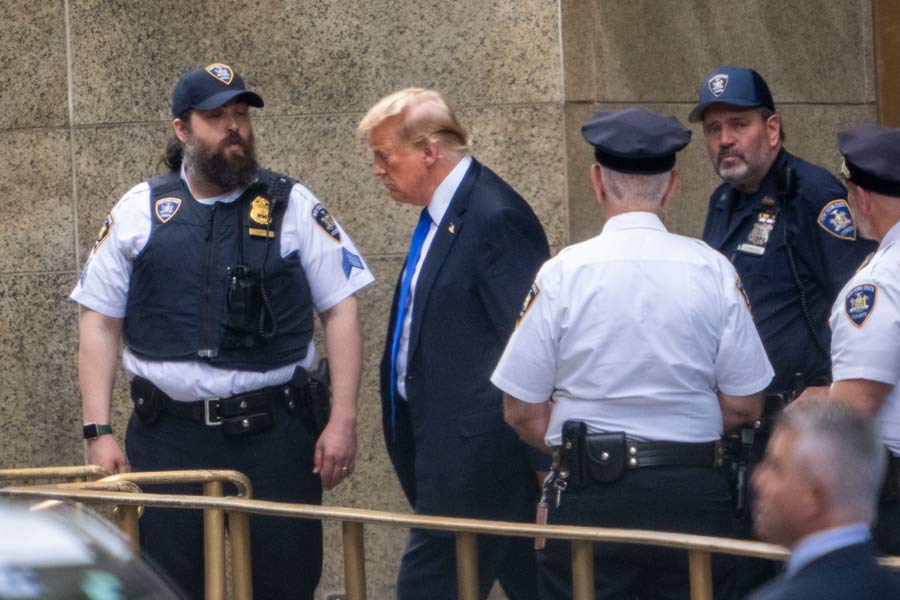The conviction of former President Donald Trump on Thursday is just the latest step in his legal odyssey in New York’s court system. The judge, Juan M. Merchan, set Trump’s sentencing for July 11, at which point he could be sentenced to as much as four years behind bars, or to probation.
It won’t stop him from running for president, though: There is no legal prohibition on felons doing that. No constitutional provision would stop him even from serving as president from a prison cell, though in practice that would trigger a crisis that courts would almost certainly have to resolve.
Voting — for himself, presumably — could be more complicated still. Trump is registered in Florida, which requires felons to complete their full sentence, including parole or probation, before regaining voting rights. With Election Day just months away, it seems unlikely that he could fulfill his sentence before then, whatever it is.
But if he is on probation come Election Day, a provision of Florida’s law might apply New York’s more lenient standards — which allow felons to vote on probation as long as they’re not in prison — because New York is where the conviction happened. The Florida secretary of state’s office did not respond to requests Thursday to confirm Trump’s eligibility status. If he’s in prison, though, he would be disenfranchised in either state.
Trump will almost certainly appeal, after months of criticizing the case and attacking the Manhattan district attorney, who brought it, and Merchan, who presided over his trial.
Long before that appeal is heard, however, Trump will be enmeshed in the gears of the criminal justice system.
A presentencing report makes recommendations based on the defendant’s criminal record — Trump had none before this case — as well as his personal history and the crime itself. The former president was found guilty of falsifying business records in relation to a $130,000 payment to Stormy Daniels, a porn actor who says she had a brief sexual tryst with Trump in 2006, in order to buy her silence.
At the presentence interview, a psychologist or social worker working for the probation department may also talk to Trump, during which time the defendant can “try to make a good impression and explain why he or she deserves a lighter punishment,” according to the New York State Unified Court System.
The presentencing report can also include submissions from the defense and may describe whether “the defendant is in a counseling program or has a steady job.”
In Trump’s case, of course, he is applying — as it were — for a steady job as president of the United States, a campaign that may be complicated by his new status as a felon. Trump will likely be required to regularly report to a probation officer, and rules on travel could be imposed.
Trump was convicted of 34 Class E felonies, New York’s lowest level, each of which carry a potential penalty of up to four years in prison. Probation or home confinement are other possibilities that Merchan can consider.
That said, Merchan has indicated in the past that he takes white-collar crime seriously. If he did impose prison time, he would likely impose the punishment concurrently, meaning that Trump would serve time on each of the counts he was convicted of simultaneously.
If Trump were instead sentenced to probation, he could still be jailed if he were later found to have committed additional crimes. Trump, 77, faces three other criminal cases: two federal, dealing with his handling of classified documents and his efforts to overturn the 2020 election; and a state case in Georgia that concerns election interference.
Trump’s lawyers can file a notice of appeal after sentencing, scheduled for July 11 at 10 a.m. And the judge could stay any punishment during an appeal, something that could delay punishment beyond Election Day.
The New York Times News Service












